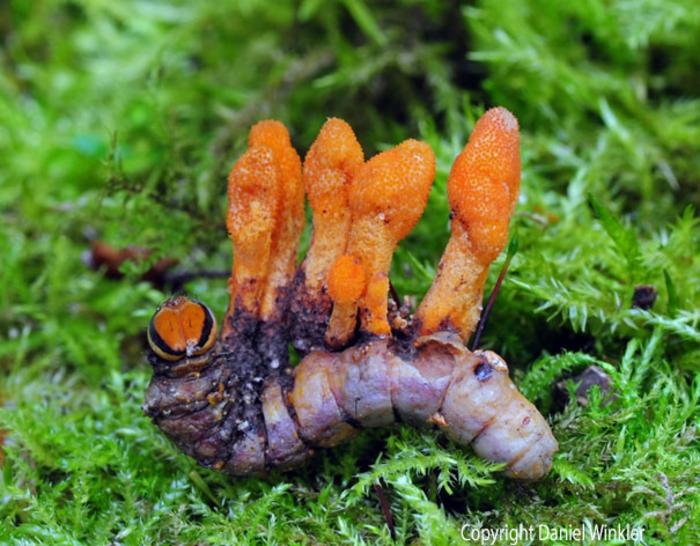A disease-causing fungus featured in the post-apocalyptic TV series The Last of Us could lead to a gamechanging cancer drug, scientists say in a new study.

In the dystopian world of the TV series, a heat-adapted version of the cordyceps fungus takes over humans, turning them into zombies.
In reality, the caterpillar fungus may be capable of saving lives thanks to the presence of a potent chemical that can thwart cancer cell growth, scientists from the University of Nottingham say.
They found the chemical, cordycepin, can disrupt cell growth signals, a discovery that can lead to new cancer drugs less damaging to healthy tissues.
The chemical is produced by the orange fungus Cordyceps militaris that infects and takes over caterpillars.
While it has long been suspected that the compound can be turned into a potent anti-cancer drug, exactly how it works has been unclear.
In the new study, published in the journal FEBS Letters, scientists measured the effects of cordycepin on the activity of thousands of genes in multiple lines of cells.
They compared the effects of cordycepin with those from other treatments recorded in databases, and found that it works by acting on the growth-inducing pathways of the cell in all cases.
“Our data are supportive of cordycepin as a lead compound for the development of anticancer drugs,” researchers write in the study.
Cordycepin is converted to cordycepin triphosphate, which mimics the cell’s energy carrier ATP. Cordycepin triphosphate affects cell growth and researchers suspect they can directly affect cancer cells.
“We have been researching the effects of cordycepin on a range of diseases for a number of years and with each step we get closer to understanding how it could be used as an effective treatment,” study co-author Cornelia de Moor said.
“One of the exciting things to have been happening is that it has become easier and less expensive to do these very large experiments, so we were able to examine thousands of genes at the same time.”
The latest findings confirm that cordycepin can be a “good starting point” for new cancer medicines, researchers say.
“Derivatives of cordycepin could aim to produce the triphosphate form of the drug to have the same effect,” they say.
The new study can also help monitor the effects of cordycepin in patients as scientists now have data pointing to particular genes which respond to the compound.





